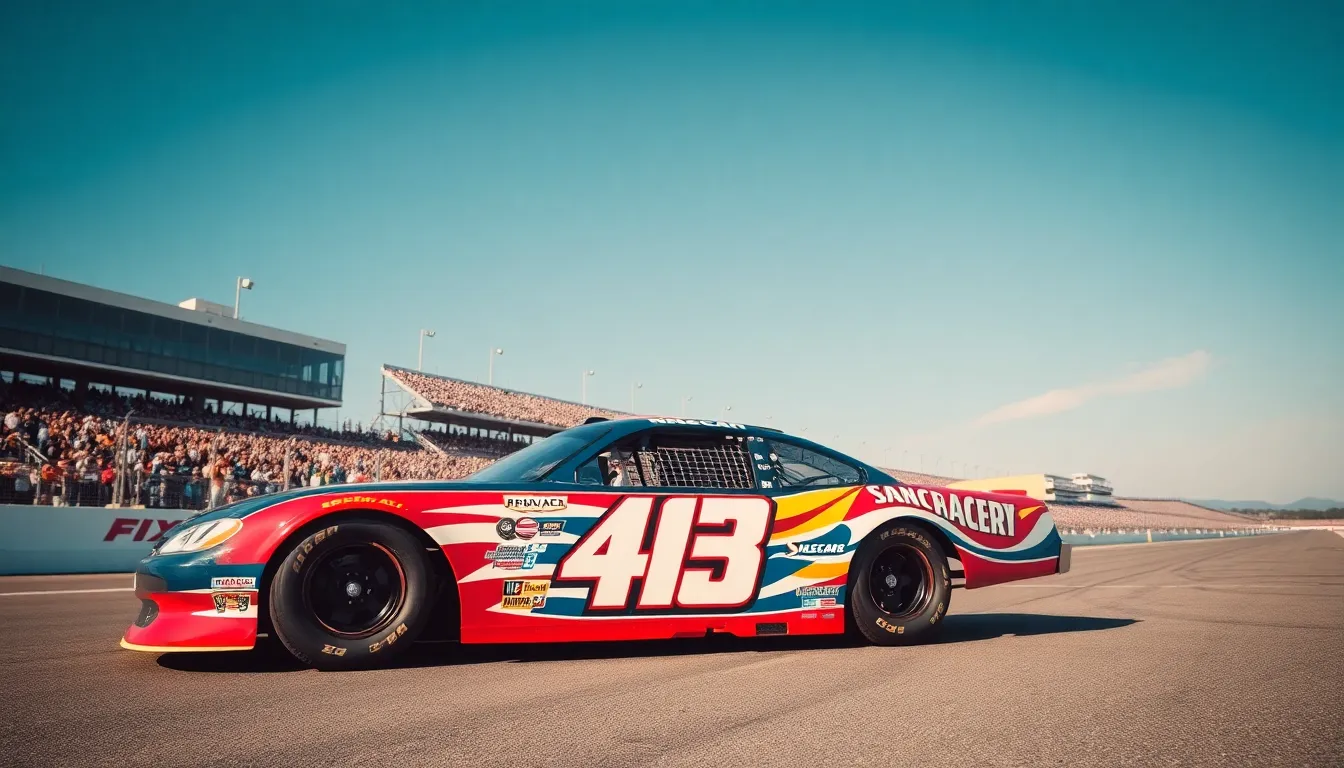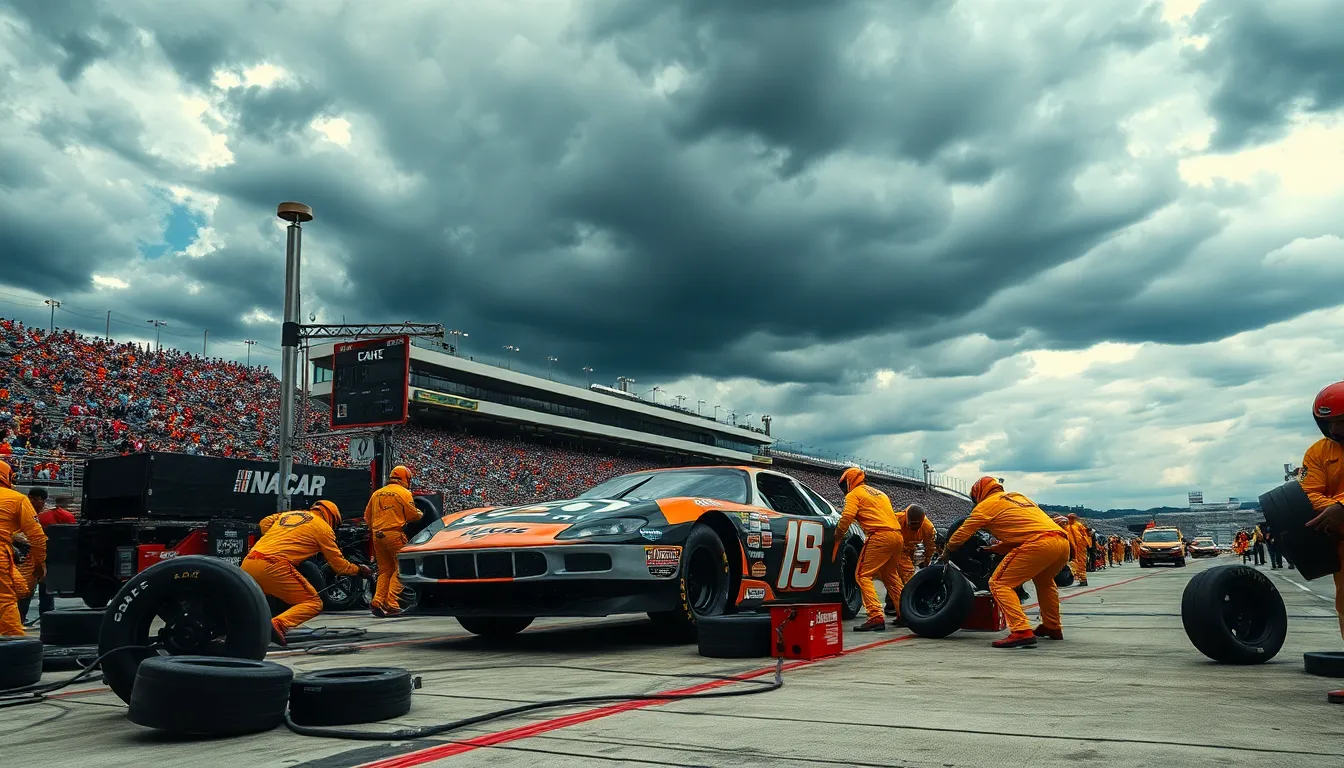In the fast-paced world of NASCAR, where speed and strategy collide, a new twist has emerged that’s got fans and insiders buzzing. A restraining order on charter sales has thrown a wrench into the gears of the racing circuit, leaving teams and owners scrambling for clarity. It’s like trying to change tires at 200 mph—exciting but a bit chaotic.
Table of Contents
ToggleOverview of NASCAR Charter Sale Restraining Order
NASCAR’s recent charter sale restraining order has generated significant attention across the racing community. This order prevents the sale or transfer of charters while ongoing discussions about its implications take shape. Teams face uncertainty as this situation impacts their financial stability and operational plans.
Ownership structures remain under scrutiny as stakeholders evaluate the future of the sport. Some team owners express frustration, feeling the order disrupts their opportunities for growth. Legal implications surrounding the order also warrant consideration, as compliance issues may arise in the future.
Consequently, this development raises various questions among teams concerning membership stability. Relationships between existing charter holders and prospective buyers are strained. NASCAR aims to maintain the integrity of its charter system while addressing the concerns of all parties involved.
Analyzing the broader implications reveals potential shifts in how teams conduct business. Teams that relied on charter sales for funding must now strategize around these constraints. Ongoing legal proceedings will ultimately shape the outcome and determine how this situation unfolds.
Despite the chaos, the organization remains committed to transparency. Navigating this landscape requires careful attention to detail and analysis. Adjustments to NASCAR’s charter system may evolve as stakeholders advocate for changes in response to the ongoing order.
Background of NASCAR Charters

NASCAR charters serve as the backbone of the racing series, defining team ownership structures and ensuring competitive balance. These charters allow teams to participate in the NASCAR Cup Series.
What Are NASCAR Charters?
NASCAR charters represent a guaranteed entry into the NASCAR Cup Series for a specific team. Each charter provides a team with the benefit of having a starting position in each race of the season. The charters are issued on a yearly basis and correlate to team performance and lineage. Teams possessing charters also gain certain financial benefits and revenues from the series. Ownership of a charter becomes a valuable asset, enhancing a team’s competitive standing and stability.
Importance of Charters in the Series
Charters play an essential role in maintaining the integrity and financial balance of the NASCAR Cup Series. They ensure that established teams can rely on consistent participation, reducing uncertainty in racing schedules. Charters help level the playing field by promoting competition among teams with varying resources. Without charters, smaller teams might struggle to sustain operations, while larger teams would dominate races without accountability. Charter ownership directly influences funding, sponsorships, and overall team growth within the NASCAR landscape.
Legal Implications of the Restraining Order
The recent restraining order on NASCAR charter sales brings significant legal implications. It restricts ownership transfers and raises critical compliance questions for team owners.
Key Legal Arguments Presented
Various legal arguments surface around the restraining order. First, some owners assert that the order violates their rights to freely transfer assets. Secondly, legal experts argue that the order may not align with NASCAR’s governing regulations. Additionally, potential challenges focus on fairness in the marketplace, as established teams might unfairly benefit from restricted access for new entrants. Courts may need to consider the broader impact on competitive balance and financial stability within the sport. Lawyers involved suggest that the outcome may set important precedents for how charters are managed in the future.
Potential Consequences for Teams and Drivers
The consequences of this restraining order could be profound. Teams that depend on charter sales for funding face financial uncertainty. Str strained relationships between existing charter holders and prospective buyers complicate operational planning. Drivers also feel the pinch; limited opportunities in racing may affect their career trajectories. Some teams might struggle to secure sponsorships, leading to potential layoffs. Should the order remain, it could reshape the dynamics of team ownership, impacting the competitive landscape in NASCAR.
Current Status of the Restraining Order
The restraining order on NASCAR charter sales remains in effect, leaving teams and owners in a state of uncertainty. Ongoing legal discussions significantly impact ownership dynamics among affected parties.
Timeline of Events
Recent developments include the issuance of the restraining order, which took effect on March 1, 2023. Prior to this, a meeting on February 15, 2023, highlighted rising concerns over charter transfers. Key stakeholders gathered on February 28, 2023, to address implications of potential sales and ownership disputes. Following the issuance, numerous teams expressed dissatisfaction as they adjusted operational plans. March 15, 2023, marked the date of the first court hearing regarding the order, with future hearings anticipated as legal arguments unfold.
Relevant Court Decisions
Court decisions surrounding the restraining order focus on the legality of ownership transfer restrictions. A ruling on March 10, 2023, underscored that owners’ rights to manage assets must be protected under prevailing laws. Regulations stipulate that ownership changes shouldn’t disproportionately favor existing charter holders. The judge’s comments emphasized the importance of fair competition among teams, with clear implications for reopening the market once the order undergoes review. Further hearings will evaluate compliance with NASCAR’s governing documents, highlighting the ongoing legal complexities facing team owners.
Industry Reactions and Analysis
Reactions from the NASCAR community reflect concern and uncertainty as the restraining order on charter sales disrupts established norms.
Opinions from Team Owners
Many team owners express frustration regarding the order’s impact. They cite limitations placed on business growth as a significant worry. Several owners feel as though their rights to manage assets freely are compromised. Ownership disputes hinder relationships between current charter holders and potential buyers. Exclusive access favors established teams, preventing new entrants from gaining a foothold. This imbalance in competition raises alarms about the future of NASCAR’s economic landscape as teams navigate these challenges.
Insights from Legal Experts
Legal experts analyze the ramifications of the restraining order closely. Some highlight the potential violations of ownership rights, focusing on asset management concerns. Others underscore the complexities surrounding compliance and regulatory frameworks. They suggest the order could face challenges in court based on fairness in the marketplace. Examination of legal precedents provides insights into possible outcomes of upcoming hearings. Professionals anticipate dynamic shifts in ownership agreements as developments unfold, affecting the entire NASCAR ecosystem.
The NASCAR charter sale restraining order has introduced significant challenges for teams and owners alike. As the legal landscape evolves the uncertainty surrounding charter transfers continues to affect financial stability and operational strategies. Stakeholders are left navigating a complex environment where ownership rights and market fairness are under scrutiny.
The implications of this order extend beyond immediate concerns as it threatens to reshape the competitive balance of the NASCAR Cup Series. With future hearings on the horizon the racing community remains on edge, anticipating how these developments will impact both established teams and potential newcomers. The outcome could redefine relationships and economic dynamics within the sport, making it a critical issue to watch in the coming months.





